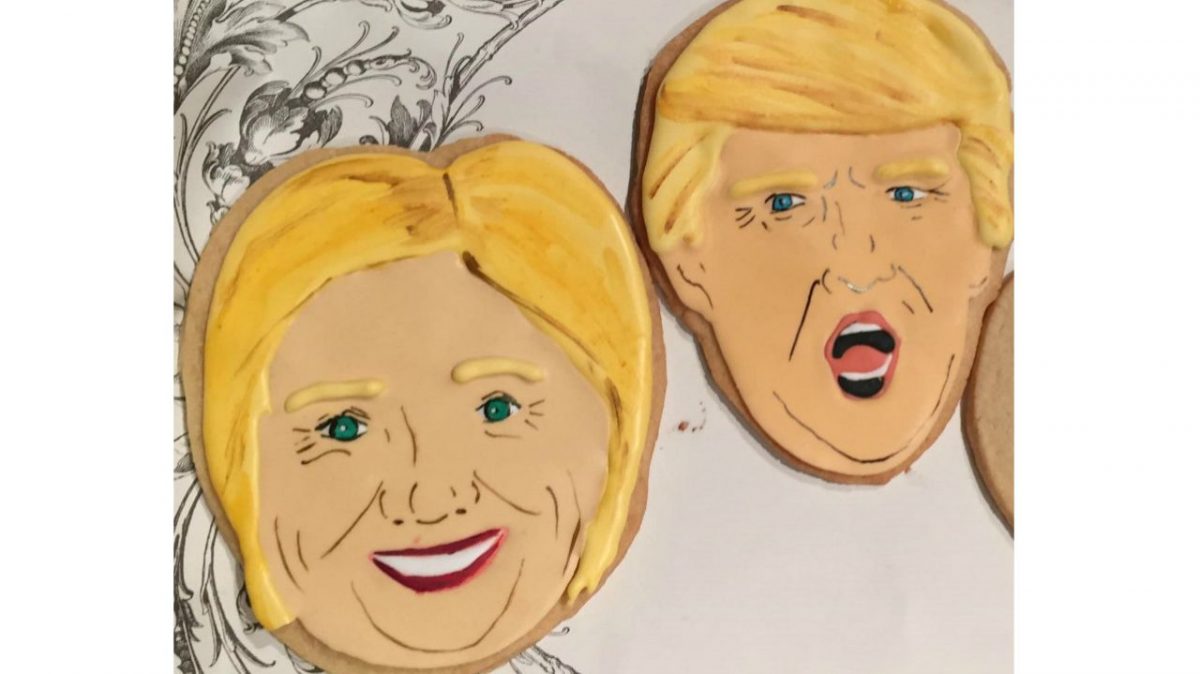By Dejarelle Gaines
This upcoming election is proving to be a first in many respects, including the mass commodification of both Hillary Clinton and Donald Trump. From cookies, to Halloween costumes, to coloring books, and clothing and accessories, this election has seen the popularization of the image of both presidential candidates. Now, whether this is a good or a bad thing, there is no concrete answer, but there are ways to look at this from a critical angle.

I think that the strongest lead that there is into this question of the reason for this rise in commercial merchandise is the increase in the branding of the self. With social media tools such as Instagram and Snapchat used to facilitate the advertisement of the self, there is an easy and accessible way for people to create a personal brand. However, this obviously is a bit different in terms of the presidential candidates of whom have people paid to create, develop, and maintain their personal brand and image. The presidential candidates have now joined the ranks with celebrities such as Beyonce and Kim Kardashian with their social media presences. The most blatant example of this being Donald Trump’s Twitter.
Donald Trump is an avid Twitter user. Quick to voice his opinions and call out his opponent Hillary at any opportunity he’s given, his campaign revolves around his Twitter antics. Why are we paying so much attention to these tweets though? I think that the answer to this is that it’s because they are SO Trump. They are so incredibly on brand to the Trump image, again going back to this idea of the all-powerful brand.
In this day and age where we can just swipe left or swipe right to find a partner, where we can buy groceries with the simple click of a button and have them delivered to our door, we have found ourselves in a time where consumer culture rules daily life—and the realm of politics is taking advantage of this trend.
